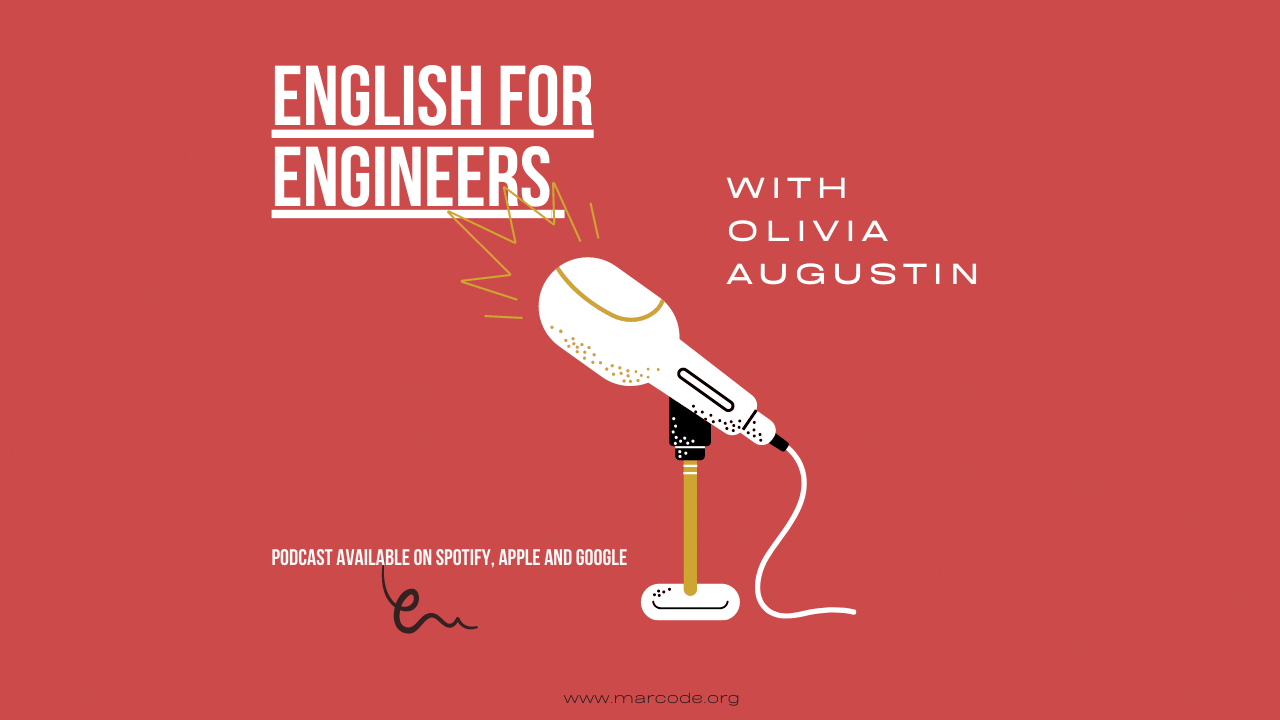
The brand new podcast
Dec 15, 2021Why a podcast?
The day after recording my first podcast episode, I was asked this question by one of my engineers/students. He saw my fancy microphone in the background and said, "do you sing in your free time?" (I do not. I mean, I do sing, but I don't record myself singing and then listen to my own audio. That would be weird.)
Anyhow. I told him about my new project and that I'd been thinking about producing a podcast for years. His next question surprised me. "Why?" he asked. "What do you mean? Why?" I countered.
"Do you do it for fun, or is it marketing?".
Good question, isn't it? Why did I start a podcast? Why do I put time and effort into something that I put out into the world for free?
Let me tell you a story. For years I'm telling my clients (all engineers like you) that 'high-quality input produces high-quality output'! What does that mean? It means that if you want to improve your written and spoken English (= language output), you need to 'consume' the English language in written or spoken form (= language input). You need to read books and/or listen to English radio stations or podcasts. Guess what? 99% of my clients love podcasts. Maybe because you're all super busy and listening to a podcast is something you can do while in the car driving from one project site to another.
The penny is in the air ...
Whenever my clients listened to me (and unfortunately, not all did nor do), they came back after a couple of weeks and told me that they had a hard time finding the right podcast for them.
Yes, they found engineering podcasts by the dozen (that's an idiom and means 'a lot'), but the hosts were English native speakers, and they talked way too fast. Or the podcasts were so specific that it was too much in-depth information after an already busy day at the office. My engineers also tried out podcasts about business communication and about project management with international teams. But then again, there wasn't enough focus on engineering or tech stuff.
So, here I am. Telling my engineers that listening to an English podcast is an excellent way to improve their Business English and Technical English when in reality, they couldn't find a podcaster who covers all the topics they need and are interested in. Also, a 60min podcast might be 'all fun and games' but ain't nobody got time for that ('all fun and games' = idiom; meaning: something is enjoyable and pleasant).
And the penny drops ...
When one can't find a solution, one must become the solution ;-)
My clients needed a podcast that
- is for engineers, by engineers.
- is about English language learning tips.
- is covering Business English and Business Communication.
- is talking about the pitfalls of working with an international team.
- is explaining Technical English.
- is exposing them to new vocabulary.
- is long enough to cover interesting topics, but
- short enough, so you don't lose your concentration.
- is fun and geeky to help you relax after work,
- but profound enough to help you improve.
That podcast should also
- have exciting guest speakers with various backgrounds and accents.
- offer downloadable resources.
- broaden your horizon.
- spark JOY.
Do I aim high? Yes. Do you deserve the best? Also yes.
Will every single episode of my podcast be nominated for an award? Probably not ;-)
But I will do my best to give you industry-related language support and cover your need for 'input' in a way that's not boring.
So, to answer the question "Why do you make a podcast?".
The answer is "Because of you!" (and because it's fun).
And because it's all about you, I highly appreciate your feedback. The good, the bad, the ugly. Just shoot me an email at [email protected].
PS: You can listen to my 'English for Enginers' podcast on Spotify, Google Player, and Apple Podcast.
PPS: Language Input is one of the main aspects of language learning. But you cannot learn everything just by listening to a podcast ;-) Language learning needs a variety of activities and methods. One way of effortlessly combining all the necessary techniques is working with me (brutal hint). But to get you started, I put together 4 forms of input/output you can implement in your daily routine even without a certified teacher and before booking a course. Download your free pdf-guide here.
